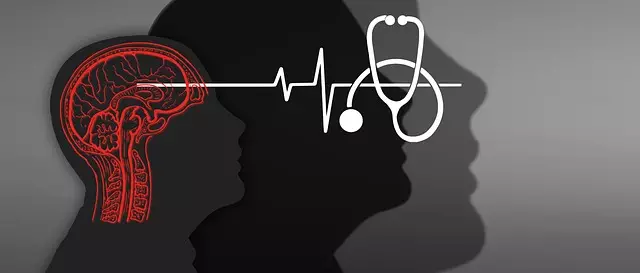The Kaiser Permanente mental health center reviews in Aurora showcase a modern, integrated approach to mental wellness that blends technology with traditional therapy. Mental wellness apps powered by this model offer accessible and personalized solutions for stress management, anxiety relief, and emotional well-being through digital platforms. These apps, featuring mood tracking, mindfulness exercises, and professional resources, cater to younger generations' demand for flexible, discreet support. The Aurora Standard sets the bar for app development in terms of privacy, security, and accessibility, with a focus on cultural sensitivity and Burnout Prevention Strategies for Healthcare Providers, as highlighted in the Kaiser Permanente mental health center reviews.
In today’s digital age, mental wellness apps are transforming lives. As recognized by leading institutions like Kaiser Permanente, these tools offer accessible, personalized support for diverse needs. This article explores the growing importance of mental wellness app development, drawing insights from the successful Kaiser Permanente model. We’ll guide you through key considerations: from understanding user requirements to implementing secure features and ensuring privacy standards set by organizations like Aurora.
- Understanding the Need for Mental Wellness Apps: Exploring the Kaiser Permanente Model
- Developing an Effective App: Features and Functionality for User Engagement
- Ensuring Privacy, Security, and Accessibility: The Aurora Standard in Mental Health App Development
Understanding the Need for Mental Wellness Apps: Exploring the Kaiser Permanente Model

In today’s fast-paced world, mental wellness is a critical aspect often overlooked in our pursuit of success and achievement. This is where Mental Wellness Apps step in as powerful tools to support individuals in managing their emotional well-being. The Kaiser Permanente mental health center reviews in Aurora highlight a growing trend—the integration of modern technology with traditional therapy methods. By leveraging digital platforms, these apps offer accessible, personalized solutions for stress management, anxiety relief, and overall mental health improvement.
The Kaiser Permanente model emphasizes the importance of holistic care, incorporating various techniques like Conflict Resolution Techniques, Mental Wellness Coaching Programs Development, and Self-Care Practices within their app-based platform. This approach resonates with the increasing demand for flexible and discreet support, especially among younger generations who are more open to embracing digital solutions for their mental wellness journeys.
Developing an Effective App: Features and Functionality for User Engagement

Developing an effective mental wellness app requires a thoughtful blend of engaging features and functional tools designed to foster user interaction. Incorporating elements like personalized mood tracking, mindfulness exercises, and access to professional resources can empower users to actively manage their emotional well-being. For instance, the Kaiser Permanente mental health center in Aurora has received positive reviews for its digital initiatives aimed at improving patient outcomes, particularly through app-based interventions that facilitate Burnout Prevention Strategies for Healthcare Providers.
Beyond core functionalities, cultural sensitivity in mental healthcare practice is a key differentiator. Apps that cater to diverse populations by incorporating culturally tailored content and language options can significantly enhance user engagement and Emotional Regulation. By prioritizing these aspects during development, creators ensure that their apps reach a broader audience and address unique mental health challenges faced by different communities, reflecting the evolving landscape of digital mental healthcare solutions.
Ensuring Privacy, Security, and Accessibility: The Aurora Standard in Mental Health App Development

In the realm of mental wellness app development, ensuring privacy, security, and accessibility is paramount, setting a standard that the industry often looks to for guidance – the Aurora Standard. This is particularly relevant given the sensitive nature of user data shared within such applications. Much like renowned Kaiser Permanente mental health center reviews highlight the importance of comprehensive care, developers must prioritize the protection of users’ personal information.
Implementing robust security measures, such as end-to-end encryption and secure data storage, are essential steps to safeguard user privacy. Additionally, promoting accessibility ensures that individuals from diverse backgrounds can benefit from these apps. Features like customizable interfaces and compatibility with assistive technologies cater to different needs, fostering an inclusive environment for users to develop coping skills and enhance self-awareness exercises. Equally important is the integration of emotional regulation tools, allowing users to navigate their mental health journeys effectively within a secure digital space.
Mental wellness apps have emerged as a powerful tool for improving access to care, much like Kaiser Permanente’s innovative approach in their mental health centers. By leveraging technology, these applications can provide personalized support and resources, fostering user engagement and positive outcomes. Adhering to the Aurora Standard ensures that these apps prioritize privacy, security, and accessibility—essential elements that build trust among users. As the demand for digital mental health solutions continues to grow, developers must strive to create inclusive and effective tools, leaving a lasting impact on individual well-being, much like Kaiser Permanente’s reputation in the field of mental health care.






